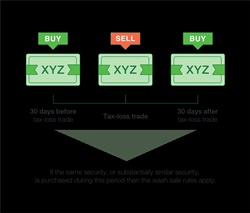
Table of Contents
What is a Wash-Out Round?
Also referred to as a cram-down deal or a burn-out round, it is a situation when a new financing round seizes control of previous equity holders. When such financing is completed, a new issuance radically weakens the ownership stake of prior owners and investors.

Thus, new investors get to take control of the firm as the previous ones look for more financing to avoid Bankruptcy. Often, Wash-out rounds are linked with small companies or startups that don’t have adequate financial stability or a significant management team.
Explaining Wash-Out Rounds
A wash-out financing round is provided in several scenarios to seize a company’s control, mainly to acquire access to assets that new management and investors anticipate to leverage.
Usually, the round sets the share prices at a diminished value. With an overwhelming interest in a firm, the stake held by previous owners and investors would be deemed possibly worthless. Although the return ratio may vary; however, the financing is priced so that it compels the previous owners to surrender to the newer lot's decisions.
For the ventures that are struggling, the wash-out round often turns out to be the last financing opportunity before the company goes bankrupt. Also, these rounds occur when firms are incapable of achieving their performance levels set to receive additional financing from investors.
Talk to our investment specialist
The Results of a Wash-Out Round
It is possible that a few members of the previous management may remain employed with the company. However, there are more probabilities for the removal of leadership in the wash-out round.
By keeping the overall performance of the company in mind, the decisions of leadership that led to the wash-out round make it unlikely for new owners to maintain the status quo. Also, in terms of keeping the brand recognition alive, some aspects of the previous operations and management may be retained.
But the new owners may find that satisfactory Return on Investment for a round of wash-out is to discover buyers for the company’s assets, like customer databases, product lines or intellectual property.
Also, wash-out rounds can even occur with such companies that have built their valuation but are suffering from sudden or slow events that invalidate the chances to grow under the current management and operations.
For example, if a company is developing smart devices as a core product and gets rejected by regulators, the company may not have another product to manufacture as an alternative.
All efforts have been made to ensure the information provided here is accurate. However, no guarantees are made regarding correctness of data. Please verify with scheme information document before making any investment.






